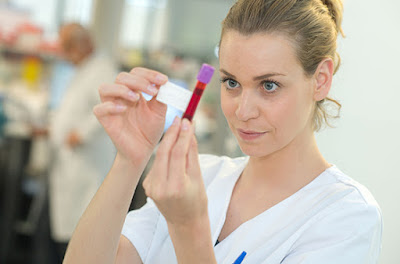The demand for phlebotomy technicians in medical settings is
increasing at a rapid rate. They play an integral role in the medical industry.
Phlebotomists draw blood from patients and collect other specimens and also
assist doctors in determining the underlying problems a patient may have.
If you are looking to build a successful career as a phlebotomy
technician, now is the time to get enrolled in a phlebotomy technician training program. According to statistics, the job outlook for phlebotomists looks
promising and rewarding in the next few years. It has been found that the
phlebotomist’s job market is expected to increase by 23% over the next ten
years, which is quite faster than other career options.
Phlebotomists are required in a variety of medical settings
including hospitals, clinics, physicians’ offices, and more.
As a phlebotomist working in a medical setting, you will be
responsible for -
- Collecting blood samples from patients using
micro-collection techniques, syringe, and venipuncture
- Preparing these samples for further testing
diagnosis
- collecting and preparing other clinical
specimens
- Clean and maintain medical equipment like
centrifuges, blood vials, test tubes, and needles
What to expect from the technician training?
If you don’t want to invest years in a medical school, you have to
enroll in phlebotomy technician training to get the certification. A technician
training program is not more than a few months. These training programs provide
hands-on training. The primary things that you learn in technician training
include -
- Collecting blood from patients & donors
- Validate a patient’s identity to properly
label the samples
- Putting anxious patients at ease while
performing the procedure
- Understanding the patient database and
learning how to enter a patient’s information in it
- Learning how to prepare specimens of a
patient for diagnosis and testing
Phlebotomy is not just about collecting blood from patients. It is
much more than that. Therefore, during your phlebotomy technician training in NY, you may also learn the following -
- Understanding the muscular, skeletal,
urinary, respiratory, lymphatic and circulatory system
- You may also learn how blood and cells are
infected and give birth to a disease
- Different ways to collect blood samples such
as venipuncture, or vein puncture, and also how to perform the procedure
on different individuals. For instance, collecting blood from adults is
quite different than drawing blood from newborns
- You may also learn CPR during your
technician training. After all, being a part of the medical industry,
every medical individual should know how to perform CPR.
We hope now you know what to expect from your phlebotomy
technician training in NY and you will be prepared for any challenges that may
come in your way.




No comments:
Post a Comment